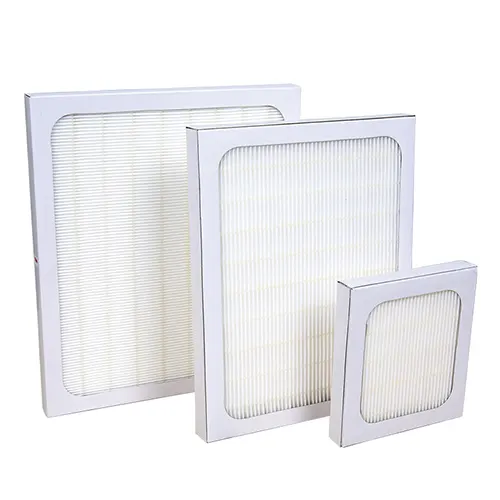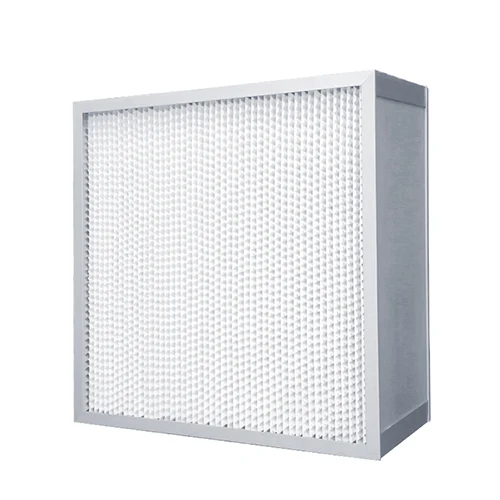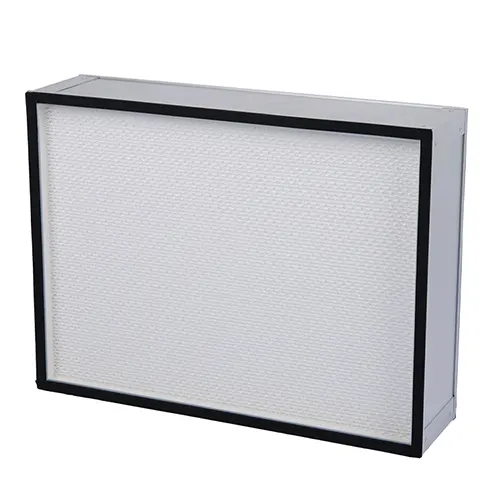HEPA VS ULPA Air Filter: What Is The Difference?
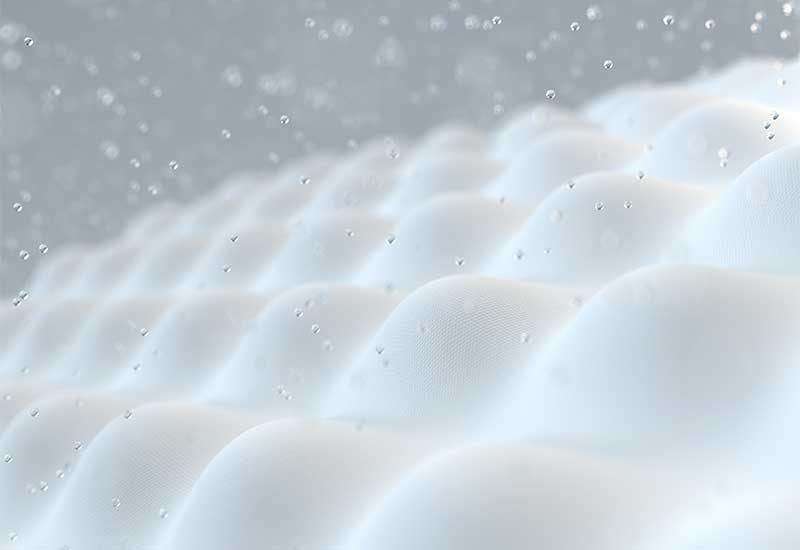 Photo by D koi on Unsplash
Photo by D koi on Unsplash
Are you familiar with HEPA and ULPA air filters? When it comes to maintaining clean and healthy indoor air, these filters play a vital role. But do you know the differences between them? In this blog post, we will explore the distinctions between HEPA and ULPA filters, helping you make an informed decision for your air filtration needs.
Why is air filtration important to indoor air quality?
Ensuring clean and healthy indoor air is crucial for our well-being, especially considering the amount of time we spend indoors. Air filtration plays a vital role in removing pollutants, allergens, and contaminants from the air, creating a healthier living environment. By capturing and trapping these airborne particles, air filters help to improve indoor air quality and reduce the risk of respiratory issues and allergies.
HEPA (High-Efficiency Particulate Air) and ULPA (Ultra-Low Penetration Air) filters are two types of highly efficient air filters used in various industries and settings.
What Are HEPA Filters?
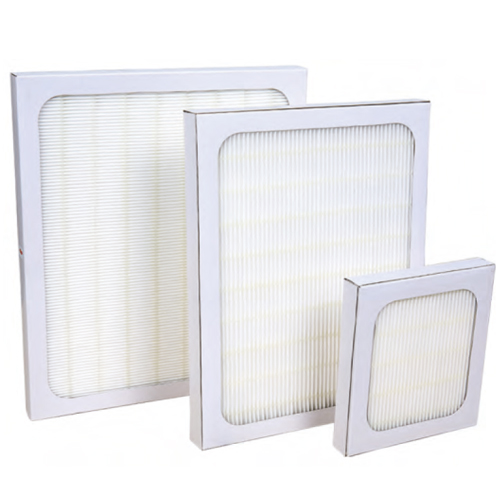 Cardboard Frame HEPA Air Filters
Cardboard Frame HEPA Air Filters
HEPA (High-Efficiency Particulate Air) filters are a type of air filter designed to capture and trap a high percentage of airborne particles.
These filters are constructed using a dense mat of randomly arranged fibers that create a maze-like structure. This unique design allows HEPA filters to effectively trap particles as air passes through them.
HEPA filters are known for their high efficiency in removing particles, with a minimum efficiency of 99.97% for particles as small as 0.3 microns.
Efficiency and particle size filtration capabilities
The efficiency of HEPA filters is what sets them apart from other types of air filters. With their high-efficiency rating, HEPA filters can remove a wide range of particles, including dust, pollen, pet dander, mold spores, bacteria, and even some viruses. These filters are particularly effective in capturing smaller particles that may pose health risks.
HEPA filters are classified into different levels of efficiency, such as HEPA H13 and HEPA H14, based on their ability to capture particles of different sizes. The most common type, HEPA H13, can trap particles as small as 0.3 microns with an efficiency of 99.97%, while HEPA H14 filters provide an even higher level of efficiency.
Common applications and industries
HEPA filters are widely used in various industries and settings that require clean and purified air. Some common applications include:
1. Healthcare facilities
HEPA filters are essential in hospitals, clinics, and laboratories to maintain sterile environments and prevent the spread of airborne pathogens.
2. Pharmaceutical industry
HEPA filters play a critical role in maintaining the cleanliness and sterility of manufacturing areas to ensure product quality.
3. Aerospace industry
Cleanrooms in aerospace facilities utilize HEPA filters to remove particulate contaminants and maintain controlled environments for sensitive equipment and components.
4. Residential and commercial settings
HEPA filters are increasingly used in HVAC systems and air purifiers to improve indoor air quality and reduce allergens and pollutants.
What Are ULPA Filters
ULPA (Ultra-Low Penetration Air) filters are a highly efficient type of air filter designed to provide superior particle filtration. Similar to HEPA filters, ULPA filters consist of a dense arrangement of fibers that create a barrier to capture and retain airborne particles. However, ULPA filters are engineered to have an even higher level of efficiency, typically with a minimum efficiency of 99.9995% for particles as small as 0.1 microns.
Higher efficiency and finer particle filtration than HEPA filters
ULPA filters offer a significant improvement in filtration efficiency compared to HEPA filters. With their finer particle filtration capabilities, ULPA filters can effectively capture even smaller particles, including bacteria, viruses, and sub-micron contaminants.
This level of filtration makes ULPA filters highly suitable for applications where the air quality requirements are extremely stringent.
Applications and Industries
ULPA filters are commonly employed in environments that demand the highest level of air cleanliness.
1. Semiconductor Manufacturing
Cleanrooms in semiconductor facilities require ultra-clean air to protect delicate electronic components from contamination, making ULPA filters essential.
2. Pharmaceutical research and manufacturing
ULPA filters play a crucial role in maintaining sterile conditions and preventing cross-contamination in cleanrooms where pharmaceutical products are produced.
3. Microbiology laboratories
Laboratories handling sensitive samples and conducting research on infectious agents rely on ULPA filters to provide a controlled and sterile environment.
4. Aerospace and defense
Critical applications in the aerospace and defense industries, such as satellite assembly and cleanrooms for sensitive equipment, utilize ULPA filters to ensure particle-free environments.
ULPA filters are ideal for settings where exceptional air quality is paramount, and the removal of extremely small particles is necessary. Their high-efficiency filtration capabilities make ULPA filters a reliable choice in industries that require the utmost cleanliness and particle control.
What Are The Key Differences between HEPA and ULPA Filters
Filtration efficiency and particle size capture
HEPA filters and ULPA filters differ in their filtration efficiency and particle size capture capabilities. While both filters are highly efficient, ULPA filters offer a higher level of filtration.
HEPA filters typically have a minimum efficiency of 99.97% for particles as small as 0.3 microns, whereas ULPA filters have a minimum efficiency of 99.9995% for particles as small as 0.1 microns. This means that ULPA filters can capture a greater number of smaller particles, including bacteria and viruses, compared to HEPA filters.
Airflow resistance and pressure drop
Another significant difference between HEPA and ULPA filters is the airflow resistance and pressure drop they impose on the HVAC system. ULPA filters generally have a higher pressure drop due to their denser filter media and smaller pore size.
This higher resistance can impact the airflow in the system and may require more powerful fans or modifications to the HVAC system to maintain proper airflow. HEPA filters, on the other hand, typically have a lower pressure drop, allowing for easier airflow and reducing strain on the system.
Cost considerations and availability
ULPA filters tend to be more expensive than HEPA filters due to their higher filtration efficiency and specialized construction. The finer materials and manufacturing processes involved in ULPA filters contribute to their higher cost.
Additionally, ULPA filters may have a more limited availability compared to HEPA filters, as they are often used in specific industries with stringent air quality requirements. HEPA filters, on the other hand, are more commonly available and widely used in various residential, commercial, and industrial applications.
How To Choose The Right Filter for Your Needs
Assessing the specific requirements
Before selecting between HEPA and ULPA filters, it is essential to assess the specific requirements of your environment. Consider factors such as the level of air cleanliness needed, the presence of sensitive equipment or materials, and any regulatory or industry standards that must be met.
Evaluate the particle size range you need to filter and the desired filtration efficiency. Understanding these requirements will help you determine whether a HEPA or ULPA filter is more suitable for your application.
Considerations for selecting between HEPA and ULPA filters
When choosing between HEPA and ULPA filters, several considerations should be taken into account. If your environment requires a high level of filtration for extremely small particles, such as in cleanrooms or critical manufacturing processes, ULPA filters may be the preferred choice.
However, if your needs can be met with a slightly lower filtration efficiency and a broader range of applications, HEPA filters offer an excellent balance of performance and cost-effectiveness.
Additionally, consider the airflow requirements of your HVAC system. ULPA filters may impose higher resistance and require modifications to the system to maintain proper airflow, while HEPA filters generally have lower pressure drop and can integrate more seamlessly with existing systems.
Consulting with experts or professionals
When faced with the decision between HEPA and ULPA filters, it is advisable to consult with experts or professionals in the air filtration industry. They can provide valuable insights and recommendations based on their expertise and experience. They can assess your specific needs, consider factors such as cost, performance, and system compatibility, and guide you toward the most appropriate filter option for your requirements.
By seeking expert guidance, you can ensure that you make an informed decision and choose the right filter that aligns with your air quality goals and budgetary constraints. Their knowledge and advice will help you navigate the complexities of selecting between HEPA and ULPA filters and ensure that you optimize the air filtration performance in your environment.
Final Thoughts
HEPA and ULPA filters are both highly efficient air filters that play a crucial role in maintaining clean and healthy indoor air. HEPA filters have a high filtration efficiency, capturing particles as small as 0.3 microns, while ULPA filters offer even finer filtration, capturing particles as small as 0.12 microns. Both filters have their unique characteristics and are used in various industries and applications.
Choosing the right filter is essential for achieving optimal air quality in your environment. The differences between HEPA and ULPA filters in terms of filtration efficiency, particle size capture, airflow resistance, and cost must be carefully considered. By understanding your specific requirements and consulting with experts, you can make an informed decision that ensures effective air filtration and meets the demands of your application.
